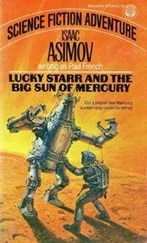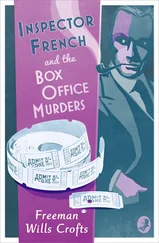Jerry Pinto - Em and the Big Hoom
Здесь есть возможность читать онлайн «Jerry Pinto - Em and the Big Hoom» весь текст электронной книги совершенно бесплатно (целиком полную версию без сокращений). В некоторых случаях можно слушать аудио, скачать через торрент в формате fb2 и присутствует краткое содержание. Год выпуска: 2014, Издательство: Penguin Books, Жанр: Современная проза, на английском языке. Описание произведения, (предисловие) а так же отзывы посетителей доступны на портале библиотеки ЛибКат.
- Название:Em and the Big Hoom
- Автор:
- Издательство:Penguin Books
- Жанр:
- Год:2014
- ISBN:нет данных
- Рейтинг книги:3 / 5. Голосов: 1
-
Избранное:Добавить в избранное
- Отзывы:
-
Ваша оценка:
- 60
- 1
- 2
- 3
- 4
- 5
Em and the Big Hoom: краткое содержание, описание и аннотация
Предлагаем к чтению аннотацию, описание, краткое содержание или предисловие (зависит от того, что написал сам автор книги «Em and the Big Hoom»). Если вы не нашли необходимую информацию о книге — напишите в комментариях, мы постараемся отыскать её.
Em and the Big Hoom — читать онлайн бесплатно полную книгу (весь текст) целиком
Ниже представлен текст книги, разбитый по страницам. Система сохранения места последней прочитанной страницы, позволяет с удобством читать онлайн бесплатно книгу «Em and the Big Hoom», без необходимости каждый раз заново искать на чём Вы остановились. Поставьте закладку, и сможете в любой момент перейти на страницу, на которой закончили чтение.
Интервал:
Закладка:
‘I am only saying that if you give a poor man a poor man’s pay and good topsoil, he will sow some seeds and grow some greens and sell them to the first bidder,’ said Sunil.
‘Sunil, what lies are these?’ asked Mr Shinde, the psychiatric social worker of the hospital, for that was who the bureaucrat was. Sunil smiled at him gently.
‘I am only saying these things in a hypodermic manner, you understand,’ he said.
‘Hypothetical, you mean?’ asked Marina, a girl who would have been beautiful if she had had a chin.
‘Do I?’ Sunil asked. ‘I must go now and cut myself some envelopes to prove to the world that I am a socially useful and productive person.’
Then he turned and ambled off, his minders gently urging him on when he slowed down, or redirecting him when he tried to wander away.
‘He got arrested,’ Shinde explained. ‘The court said jail or here. Here means no criminal record so his parents put him here. He will go home in two months.’
A crocodile of patients went past. They all looked alike in dirty grey white clothes and near-shaved heads. They looked dehumanized, as if their identities had been stolen. They looked like something from a Holocaust film.
‘Where are they going?’ Arpana asked Shinde.
‘Electro-Convulsive Throppy,’ said Shinde. ‘ECT. Shock treatment.’
We had learnt about it in abnormal psychology. James Coleman, who had written our text book, was sure that this treatment had outlived its utility and spoke with heavy irony of how the Russians still reported great results from its use in state mental hospitals. He seemed to be suggesting that the socialists would do anything to maintain their quotas.
‘Can the students watch?’ Arpana asked.
Shinde nodded as if it were a matter of indifference to him. He was casual, as if granting her the right to use the toilet in his house. It occurred to me then that the mad in India are not the mentally ill, they are, simply, mad. They have no other identity. Here, everyone was mad. They had lost their hair so that the institution could keep them free of lice. They had lost their clothes because their families had abandoned them, and they had lost their lives because they had lost their families. They were now free, in a bizarre sort of way. They were also alone except for the shoulder in front and the touch of the fingers of the person following behind.
No wonder Shinde did not ask their permission. No one asked their permission. They did not need to be asked. I thought it would be disconcerting meeting their eyes because I wouldn’t know what was going to look out or what I was going to be looking into. But in the line I found nothing much. An old woman who was looking at everyone with venomous eyes. A man who seemed to be stripping the women. And then a young man who smiled at me, a smile of such awesome sweetness that I felt I had found the key.
The key was me.
Add me and the mentally ill could be saved. The young man was healed. He had reached out. But then I noticed that the smile came and went like something mechanical. He did not even seem to notice who he was smiling at.
The line dissolved at the door of the dispensary. One of the ward boys used his body as a battering ram and got everyone into line again. The first mad person, a man of indeterminate age, lay down on a table and a cup was placed by his side. The next two patients strapped him down while he struggled weakly, almost as if by habit. They stepped back. The electricity was turned on. The patient’s body arched. Then he relaxed. His head was turned over and saliva came bubbling, frothing out of his mouth. Then the switch was thrown again and he went into a spasm. Then the next two patients undid the straps, rolled him off and helped him to stumble groggily to the side of the room where he slumped, as if his bones had melted, into a heap on the floor. His legs were splayed, his head drooped on his chest and some last drops of saliva ran down his chest.
It was like watching some ancient medicine man at work. Even in the late 1980s, it was old juju.
‘It has a remarkable success rate,’ said Arpana defensively. Shinde seemed to have vanished.
‘What is success?’ Ravi asked. He was a sharp-faced and silky-haired boy from my university, with a quicksilver mind. It glittered but it had no staying power. You could tell he would go on to become a huge success in advertising.
I could have told them both what success meant, what ECT did, but I held my peace.
Later, Arpana told us that she knew of a doctor who administered ECT to a fourteen-year-old girl who had started wetting her bed and a twenty-four-year-old who had memory lapses.
‘Did it cure them?’ Ravi asked.
‘It helped them.’
‘And how exactly?’
‘It helped them to be normal,’ said Arpana with the ease of someone who had never really been interested in words.
‘So the end of psychiatric medicine is to iron out all differences and produce identical paper dolls?’
‘I didn’t say that.’
‘Well, the word normal comes from “norm” and the norm…’
‘… allows for deviation,’ said Arpana triumphantly.
‘And the limits for that are set by the word normal?’ Ravi asked.
‘Yes.’
‘Who sets the limits?’
For a moment, I could clearly see how this would shape up. Ravi was going to beat the shit out of Arpana with his mind. He was going to demonstrate his intellectual superiority. He was going to show us his debating skills. The rest of the debate wound its way past R. D. Laing, definitions of normalcy, the state of middle-class morality, the issue of Marxist analysis, and other bits and pieces of our sophomore reading.
But a question stayed with me. What is a cure when you’re dealing with the human mind? What is normal? I saw Em at that moment, the time she went into the Staywell Clinic: a raving maniac, her face flushed, a blob of frothy spit caught between her lips, her hair wild, her voice cracked and harsh, her eyes flickering incessantly, as she assessed the flood of information that was her world for new threats to all of us…
No, that’s not quite how it was.
Em didn’t go into the Staywell Clinic. We sent her there. Susan and I.
In the fading light of Li2CO3, Em decided that there was a conspiracy aimed at her. Soon, she was sure that it was aimed at the entire family. The Brihanmumbai Mahanagarpalika, the municipal corporation of the city, had decided to dig up the roads outside our house. The trenches looked like graves to Em and she became convinced that the architects of the conspiracy were winning. There was nothing left to do but appease them. They demanded offerings, and so late one night she began to throw things into the trenches. A clock hit a sleeping worker, some of our household goods were flung back at us, with shrill abuse, and the neighbourhood was roused. ‘They’, who would bury us in unmarked graves under Mahim’s roads, had demanded our alarm clock, several handkerchiefs, The Big Hoom’s watch, spoons, katoris, glass toffees, ashtrays and some of my college books.
At three o’clock in the morning, it seemed like a horrible calamity. When one was surrounded by neighbours who could not decide whether to be angry at having their sleep disturbed or vastly intrigued by the goings-on, when one had just had a couple of years of comparative peace, this seemed to be the last straw for me. I began to scream and wail and carry on in the manner of the people I despised most. I screamed that I was leaving the house. I said I could not live with someone like that. I said I wanted to kill myself. I said I could not bear my life. Perhaps if The Big Hoom had been in town, it might have been different. But he wasn’t. He had been offered the chance of a lifetime; an opportunity to earn some money in Brazil, on deputation for the Indian government.
Читать дальшеИнтервал:
Закладка:
Похожие книги на «Em and the Big Hoom»
Представляем Вашему вниманию похожие книги на «Em and the Big Hoom» списком для выбора. Мы отобрали схожую по названию и смыслу литературу в надежде предоставить читателям больше вариантов отыскать новые, интересные, ещё непрочитанные произведения.
Обсуждение, отзывы о книге «Em and the Big Hoom» и просто собственные мнения читателей. Оставьте ваши комментарии, напишите, что Вы думаете о произведении, его смысле или главных героях. Укажите что конкретно понравилось, а что нет, и почему Вы так считаете.











